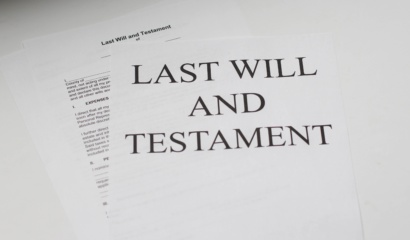Home / Business Legal Lifecycle / Start Up / Leasing Premises
Leasing Premises
Seek Legal Advice On Lease Agreements
Leasing Premises
A large number of businesses operate from commercial, industrial, or retail premises, often owned by a third party landlord. The relationship between the business owner (the lessee/tenant) and the owner of the premises (the lessor/landlord) is important for the successful running of the business. Being able to effectively operate your business without interference from third parties such as landlords is important for the early success of a business. As a business owner, you need to ensure that any lease you enter into is on fair commercial terms and is affordable. The exact commercial terms will depend on the premises being let and your particular circumstances.
It is essential that you have advice from all of your consultants during the lease negotiations to ensure that you enter into a lease that is advantageous for you and your business. Far too often I have had to help clients that didn’t get timely advice and tried to do it all themselves. The first mistake they made was not realising they were negotiating with a landlord and/or agent who dealt with these type of matters every day and were expert negotiators. Unless you get the right advice you may very well find yourself agreeing to terms that will hurt your business down the track.
Important considerations when leasing premises include:
- The amount of rent and when it is payable
- The length of the lease and any options to renew at the end of the initial term. This is essential as you plan for the future
- Whether the rent includes outgoings and/or operating expenses. Outgoings are the expenses generally incurred by the landlord such as rates, cleaning costs, rubbish removal, maintenance of air conditioning, lifts, escalators, security, repairs and maintenance, insurance premiums and management costs. Operating expenses are consumables generally incurred by the tenant such as electricity, water, gas and are dependent upon the tenant’s consumption at the premises
- The type of security you need to provide to the landlord. This may include a bank guarantee, bond or a personal guarantee and will depend on the type of entity entering into the lease
- Whether there are any incentives, such as rent–free periods or fit out contributions paid by the landlord, to induce you to enter into the lease
Seek Commercial Lease Legal Advice
It is important to ensure that a commercial lease properly reflects the agreement between the parties as there is no such thing as a standard commercial lease; each lease reflects the different terms and conditions negotiated between the parties. The process for entering into a commercial lease is a complicated one and it is important that you understand all of the required steps prior to going through the process to ensure that nothing is overlooked.
The process for entering into a commercial lease is:
- (a) Finding the property
- (b) Initial negotiations
- (c) Drawing up the lease, including:
- (i) whether the premises will be used as a retail shop
- (ii) other general provisions that need to be considered
- (d) Your obligations as an ongoing tenant
Finding the property
The first step in entering into a commercial lease is locating the property that you want to lease. The crucial element here is to find a property that meets your space and location requirements; these initial aspects of the search will help you to determine what commercial property is right for your business. The appropriate property for any business will vary greatly depending on the type of business, its target audience, the requirements of local authorities and the business owner. You need to speak to an appropriate commercial agent to determine all of these factors and find the right property for your business.
Initial negotiations
After you find the right premises you would ordinarily contact the listing agent or the owner if no agent is appointed. They will have a letter of offer or agreement to lease for you to complete and sign. This document usually contains the salient features required for the lease, including the name of the landlord and tenant, the rent and outgoings payable, the commencement date, the area of the premises, the length of the lease (with any options to renew), and any incentives that the landlord is offering you to enter into the lease. It is essential at this point that you seek advice from your consultants, such as lawyers accountants, financial planners and business mentors, to ensure that the terms are commercially suited for your business and there is nothing untoward in the letter of offer or agreement to lease such as a change that you did not agree to, or where it places an obligation on you to perform a task during the lease that is unusual or unreasonable.
Once you sign this offer or agreement to lease you are bound by the terms of the document. The documentation will usually require that you pay a deposit, which you will need to pay upon signing. If you are unable to obtain professional advice before signing, you should ensure that you read through the document carefully and ask that:
- (a) It be subject to your lawyer’s approval; and
- (b) That you be entitled to a full refund of any monies paid if you do not proceed with the lease
The lease
Once you have agreed to the terms of the lease, the landlord will instruct their lawyer to prepare the formal lease agreement. This document will set out the terms and conditions upon which you will lease the property. At this point, if you have not previously engaged a lawyer, it is essential that you do so now in order to ensure that all of your requirements are covered in the lease and that you are not left with any onerous requirements or terms to which you have previously agreed in the initial negotiations.
Further legal advice on lease agreements
Are the premises being leased actually a retail shop?
Broadly speaking, a lease of a retail shop is a lease or premises within a retail shopping centre. Countries have different legislation to protect different types of tenants.
In Australia, all states have legislation that regulates retail shops and protects tenants. The legislation is there to protect business owners against landlords who, often being larger and more experienced in business, try to manipulate the smaller businesses that are their tenants.
General provisions to be considered
Given that there is no standard commercial lease document, it is important to remember that the terms of a lease will be negotiated by the parties to ensure that they properly reflect the rights and obligations of each party and that the terms are not too onerous on either party, especially the business owner tenant.
There are various matters that you should consider in entering a lease. These include:
- The initial rent and the method for calculating the rental increases over the term of the lease
- The initial term and how the lease is to be renewed or extended
- Whether local town planning laws allow your business to operate from the particular premises and under what conditions
- Your right to transfer or assign the lease if you decide to sell the business, and the expense of doing so
- Whether you can sublet the premises
- Who pays for:
- keeping the premises in good repair including structural Improvements
- rates and taxes
- outgoings and other charges
- all the additions, improvements, and fixtures made during the lease
- The types of insurance required and who obtains each type of insurance
- Restrictions on the removal of fixtures and fittings
- Your obligation to remove partitions and reinstate the premises after expiry to its original condition
- The consequences of failing to pay rent
- Your right to end the lease before it expires
- The process of resolving any disputes with the landlord
- Whether any specific legislation applies to your lease and the obligations it places on each party
- Special obligations if you are in a shopping centre
- Payment of a security deposit, bank guarantee and/or the terms of any personal guarantee
Obligations as an ongoing tenant
Too often, business owners do not maintain their obligations during the term of the lease which may have serious consequences for both the owner and the business. Some of the major areas in which I have seen business owners fail in maintaining their obligations as an ongoing tenant include failing to:
- Comply with the conditions of the lease and any rules set out by the landlord
- Give notice in time to renew the lease
- Understand their rights if they stay on as a tenant without renewing the lease
- Obtain the landlord’s consent if they wish to change the type of business they run
- Understand the landlord’s right to end the lease early
Before you take possession and undertake any works on leased premises you should take photos or a video of the premises as a record of the condition that the premises were in at the time you took possession. This is critical, because by the end of the lease, which may be three, five or 10 years after you take possession, a dispute may arise with the landlord as to the original state of the premises which is usually the level to which you have to reinstate the premises at the end of the lease. Photographic evidence from the start of the lease is the best evidence to ensure that you can comply with this requirement.
Owning your own property
It is becoming increasingly popular for business owners to buy the property from which they operate their business, a move which has significant benefits and risks. These are discussed further in section 9.
Interested In Discovering Your Legal Risks?
FAQs
Have an Enquiry?






